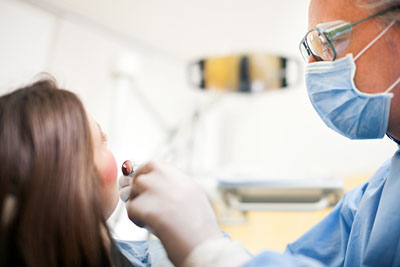What To Expect When Seeing a Sedation Dentist

If the thought of going to see a dentist sends shivers down your spine, you might need a sedation dentist. These are dental professionals who have lots of experience administering sedatives that make dental visits more enjoyable for those with dental anxiety.
Dental anxiety is a serious issue that many wrestle with. Some would rather deal with an agonizing toothache than schedule a visit to the dentist. Since dental phobias keep people from getting treatments they need, people who experience them are more likely to develop severe serious complications that require extensive treatments.
A sedation dentist can help such people get past the fear of dentists while providing any treatments they need. Sedation dentistry saves patients time and money in the long-run, not to mention, sparing them the agony that comes with many dental issues.
What to expect when you visit a sedation dentist
Most of the sedatives used during sedation dentistry keep the patient awake, with deep sedation and general anesthesia being the exceptions.
The different levels of sedatives the dentist might use include:
- Minimal sedation: The patient stays awake but relaxed during the treatment
- Moderate sedation: The patient remains conscious, but their speech and memory might be impaired
- Deep sedation: The patient is right on the edge of consciousness. They might fall asleep while its administered, but they can be easily woken up without any medication
- General anesthesia: The patient is unable to feel pain and is unconscious during the procedure
Commonly used sedatives in dentistry
Here are some of the more commonly used sedatives:
1. Nitrous oxide
Most people know this as laughing gas. It is delivered with a nose mask and it keeps patients relaxed during treatments. It only takes a few minutes for the patient to feel the effects of the gas, and it wears off just as fast. In many cases, the patient will be able to drive themselves home after being sedated with nitrous oxide.
2. Oral sedatives
This involves the use of sedatives that keep patients relaxed before and during dental visits. Drugs like Halcion and Valium are typically used for this purpose. The patient takes the medication an hour prior to their appointment, and it helps them to overcome their fear of going to the dentist.
These sedatives tend to make people drowsy, so transportation to and from the clinic should be arranged.
3. IV sedation
This is a stronger type of sedation that involves delivering the medication directly to the patient's bloodstream intravenously.
4. Deep sedation and general anesthesia
This type of sedation makes the patient partially or fully unconscious. A person who is placed under general anesthesia cannot be woken up easily until the drug wears off or its effects are reversed with medication.
Sedation makes dental visits more pleasant
Dentists typically combine sedatives with local anesthetics to give their patients a pain-free experience. Stop by our Stuart clinic if you are one of the millions of people who have dental anxiety.
Request an appointment here: https://drdelucia.com or call Anthony DeLucia D.D.S., P.A. at (772) 492-7045 for an appointment in our Stuart office.
Check out what others are saying about our services on Yelp: Read our Yelp reviews.
Related Posts
Dental implants are an innovative solution for replacing missing or damaged teeth, offering a long-term restoration that blends seamlessly with natural tooth structure. These implants rely on integration with the jawbone for stability and functionality. After receiving a dental implant, dentists recommend certain steps to support a comfortable and successful recovery.During the first 24 hours,…
Dental implants provide a durable and long-lasting solution for missing teeth, but like natural teeth, they can be damaged under certain circumstances. Trauma, excessive pressure, or complications with the surrounding structures may compromise the integrity of an implant. Understanding what to do in the event of damage can help prevent further issues and protect oral…
Teeth whitening appeals to everyone with a dull smile, including those with sensitive teeth. While it remains a viable stain-lifting option, sensitivity-prone patients should approach treatment with caution to avoid irritation while still improving smile brightness. Custom take-home trays from a general dentist help control dosage and fit, reducing many common triggers of sensitivity.The teeth…
Dental implants can be an effective and aesthetically pleasing long-term solution for missing teeth. However, misconceptions about implants can make some hesitant to consider them. In order to help patients make an informed decision, it helps to dispel some common myths about dental implants.One of the biggest concerns people have about dental implants is pain.…
